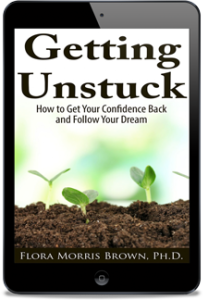 A lie is commonly defined as saying something we believe is not true with the intention of deceiving someone. All lies are not equal, as evidenced by the categories in which we place them.
A lie is commonly defined as saying something we believe is not true with the intention of deceiving someone. All lies are not equal, as evidenced by the categories in which we place them.
Black lies are at the bottom of the heap. Their intent is to deceive even if it causes damage and harm to others, such as when Susan Smith, a white woman, killed her two sons and said a Black man did it.
White lies are at the top of the pile of lies. Their intent is ostensibly to spare someone’s feelings, such as saying you won’t be able to attend a party that you just don’t want to attend.
Gray lies are those that fall in between, but generally aren’t thought to intentionally bring severe harm to others. Saying “Good.” in response to “How are you today?” when you really don’t feel good.
Literature and religious doctrine are full of references to lying and its severity.
St. Augustine believes lying is always a sin. Some lies are more sinful than others. Most find life very hard to live within the limits of always being truthful. The Catholic Encyclopedia states
St. Augustine held that the naked truth must be told whatever the consequences may be. He directs that in difficult cases silence should be observed if possible. If silence would be equivalent to giving a sick man unwelcome news that would kill him, it is better, he says, that the body of the sick man should perish rather than the soul of the liar. Besides this one, he puts another case which became classical in the schools. If a man is hid in your house, and his life is sought by murderers, and they come and ask you whether he is in the house, you may say that you know where he is, but will not tell: you may not deny that he is there.
St. Thomas Aquinas, on the other, hand takes a softer view. He believes all lies are sinful, but some are more mortal than others. He classified lies into three categories:
• officious–a lie that does nobody any injury; an excuse
• jocose–saying something for amusement
• malicious–a lie that does harm
Some folks believe that the prohibition against lying is primarily Christian, citing that Jewish law allows lying for household peace and Buddhism allows that lying may not be a sin.
In an article by Robert W. Mitchell we learn this about Emily Post. Although etiquette expert Emily (Mrs. Price) Post claimed that etiquette requires “honesty and trustworthiness in every obligation” (Post, 1945, p. 2), she offered this advice for the unhappy visitor:
If you go to stay in a small house in the country, and they give you a bed full of lumps, in a room of mosquitoes and flies, on a floor over that of a crying baby, under the eaves with a temperature of over a hundred, you can the next morning walk to the village, and send yourself a telegram and leave! But you feel starved, exhausted, wilted, and are mosquito bitten until you resemble a well-developed case of chickenpox or measles, by not so much as a facial muscle must you let the family know that your comfort lacked anything that your happiest imagination could picture–nor must you confide in any one afterwards (having broken bread in the house) how desperately wretched you were (pp. 428-29).
What color are your deceptions?



Recent Comments